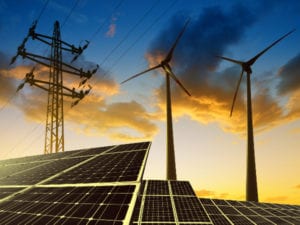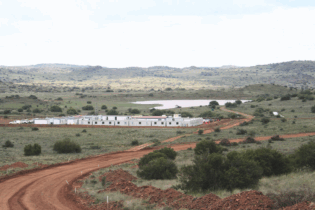Over the past two decades, renewable energy technology has seen exceptional growth, whilst reducing greenhouse gas emissions and contributing to national economies and employment levels around the world.
By Callum McPhillips
COVID-19 however, has had devastating disruptions in a number of key markets. This has led to global financial restraints and a decrease in demand for renewables, meaning growth in the industry could be set to slow down for the first time. Governments across the world have a key part to play in ensuring the renewable industry continues to grow in the coming years. Extending deadlines for renewable projects and creating financial incentives for third party investors can reduce the risk of investment. The introduction of new, short-term policies to keep long-term renewable energy visions on track is also essential in ensuring continued and sustainable growth in the industry. Eskom however, South Africa’s government-owned main energy provider, have decided to curtail operations of wind energy power producers, despite electricity production being classified as an essential service. This is unlikely to convince investors of the government’s long-term commitment to renewable energy. Battery Experts believe that South Africa’s renewable energy industry, with government help, can recover from COVID-19.Extend deadlines & financial incentives
2020 was set to be a milestone year for the global renewable energy industry, however, COVID-19 has caused supply chain disruptions leading to delays in completing may renewable projects. A number of these projects are spearheaded by government incentives, many of which are due to expire at the end of 2020. Governments across the world are key to preventing the stagnation of the renewable energy industry at this time, by introducing targetted policies. Reduced demand in electricity, as well as financial pressure on public and private sectors, has seen Eskom decide to curtail funding and operations of wind farms. Despite South Africa utilising load shedding over the past months, which is planned rolling blackouts, the country is now left with an excess supply of electricity.This decision has understandably undermined the confidence which third-parties have in the government’s commitment to invest in additional renewable energy. These investments are based on 20-year returns, meaning if these projects don’t materialise as anticipated, the cost of funding for future projects increases.
The South African Governments priorities may well lie with repairing economic damage brought by COVID-19, however, there are actions which allow for this, whilst backing the continuation of renewable projects. Extending deadlines and increasing financial incentives for renewable projects can repay investors’ faith, increasing the likelihood of future projects taking place. Continuing to invest in wind farms and other renewable energy projects are essential to account for the delays in supply chain disruptions and labour shortages, brought about due to COVID-19.






